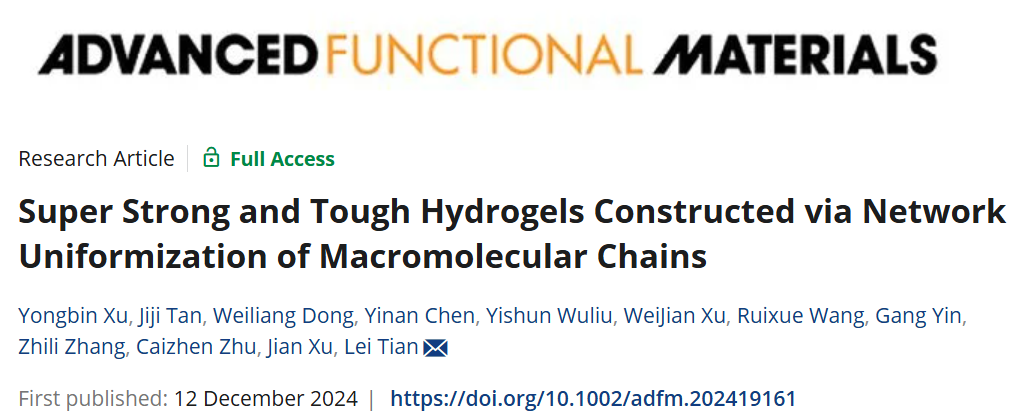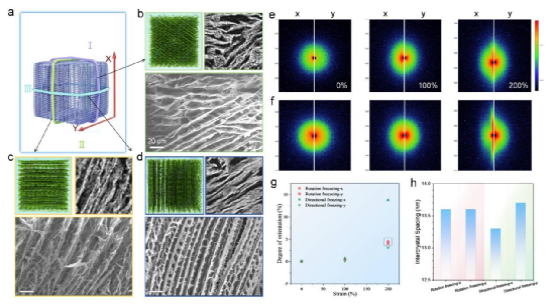Recently, Tian Lei's team from the College of Chemistry and Environmental Engineering of Shenzhen University published a research paper titled "Super Strong and Tough Hydrogels Constructed via Network Uniformization of Macromolecular Chains" in Advanced Functional Materials (Nature Index journal, Impact Factor 18.5, JCR District 1 of Chinese Academy of Sciences, Top Journal). The first author of the article is Xu Yongbin, a master student of Shenzhen University, co-first author Tan Jiji (a doctoral student under the guidance of Associate Professor Tian Lei) from Chengdu Institute of Organic Sciences, Chinese Academy of Sciences, and Dong Weiliang, a doctoral student of Shenzhen University. Shenzhen University is the first communication unit of this article, and Associate Professor Tian Lei is the only corresponding author of this article.

The polymer network of hydrogel usually has local structural inhomogeneity during the reaction and molding process, which creates the conditions for stress concentration and crack expansion. When the hydrogel is stretched by external force, these stress concentration areas are more prone to fracture, resulting in the overall performance of the material. Improving the mechanical properties of materials by improving the uniformity of polymer networks has been one of the major challenges in the hydrogel field.

Figure 1 The homogeneous construction process of polymer macromolecules is an important part of the ultra-high performance of hydrogels
This work presents a new method for hydrogels using a rotating ice template. By combining this process with salting out, hydrogels with excellent toughness over 350 MJ / m³, ultra-high tensile stress (20 MPa) and fracture strain (3000%) in both X and Y directions were created.

Figure 2: A Study on the homogenization mechanism of the macromolecular network
The rotating ice template method endows PVA-PCL hydrogels with a dense and uniformly interwoven network of microfibers at the X and Y 2 D microscopic scales, which allows the hydrogels to exhibit highly uniform and superior mechanical properties when stretched in different directions. The study also demonstrates the universality of preparing a series of phase-separated polymer hydrogels by rotational freezing and salting out strategies. These hydrogels show a better stretchability and mechanical strength than conventional hydrogels. These properties are attributed to the effective crystallization domain, phase separation, robust hydrogen bonds and formation of uniform fibrous networks.
The authors are grateful for the support from the National Natural Science Foundation of China, Shenzhen Science and Technology Major Projects, Shenzhen Key Project, Guangdong Provincial Basic and Applied Basic Research Fund, Guangdong Provincial Department of Education Project, and CNPC Innovation Fund.
Article details
Y. Xu, J. Tan, W. Dong, Y. Chen, Y. Wuliu, W. Xu, R. Wang, G. Yin, Z. Zhang, C. Zhu, J. Xu, L. Tian, Super Strong and Tough Hydrogels Constructed via Network Uniformization of Macromolecular Chains. Adv. Funct. Mater. 2024, 2419161. https://doi.org/10.1002/adfm.202419161
